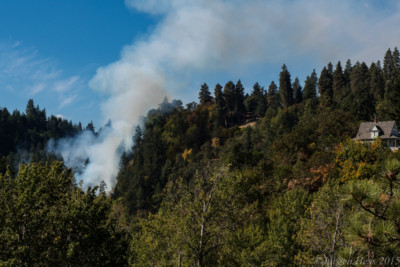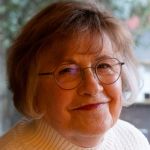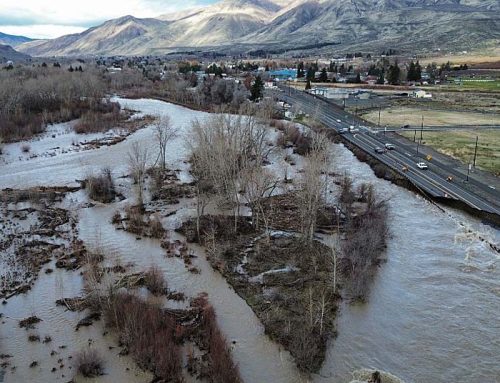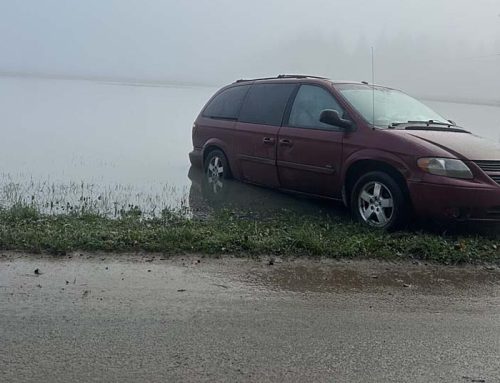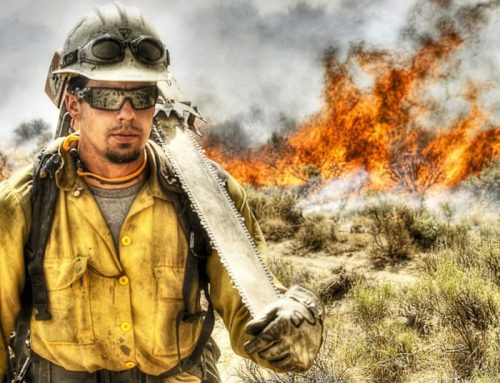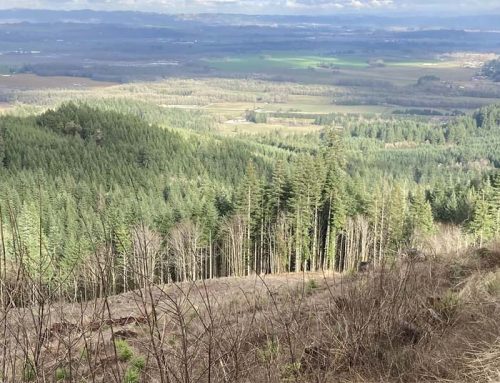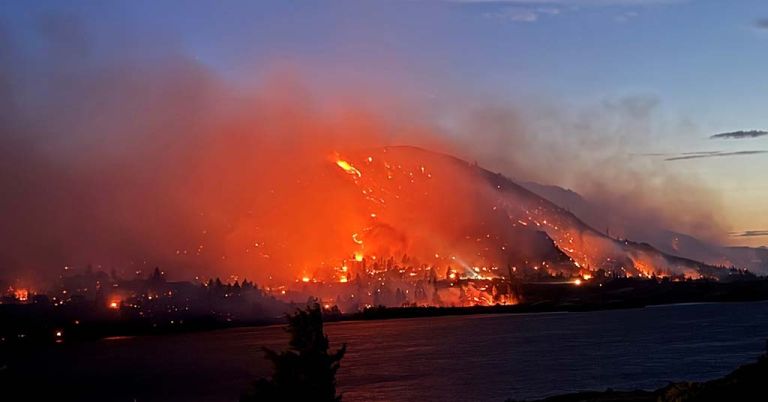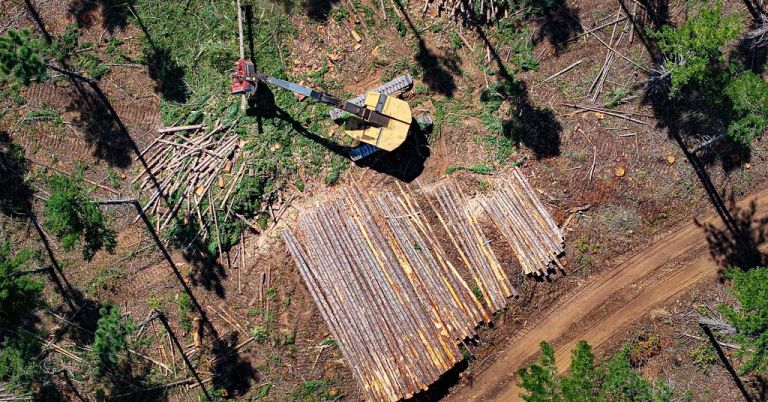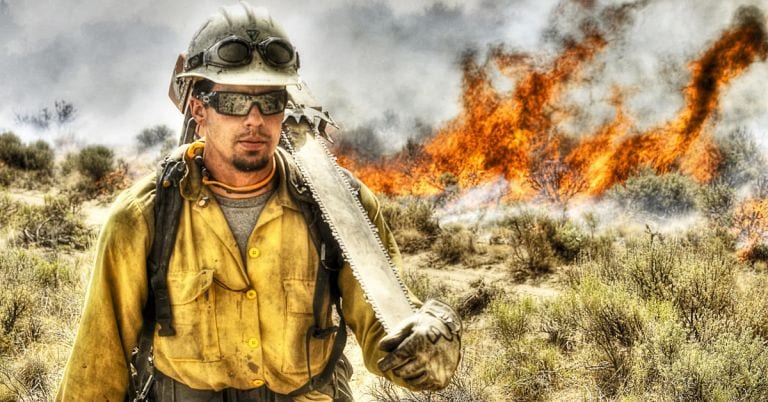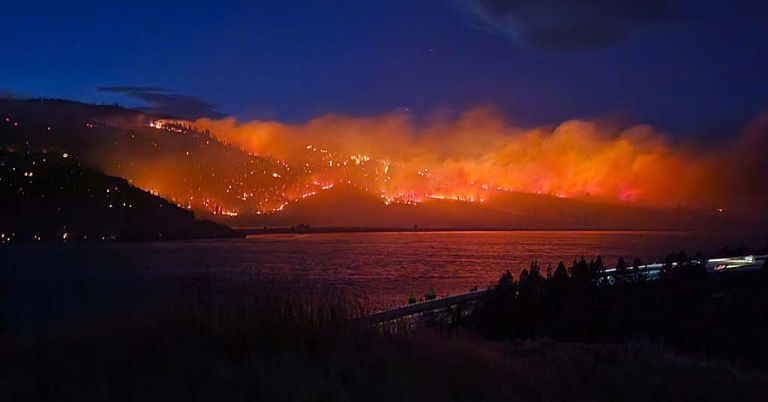By Peter Rysavy. Oct. 4, 2018. We walked to Dave’s driveway as dusk crept in to get a clear view east. We came out early on this late-September evening, because my daughter, Lea, was anxious to see the lunar eclipse. I glanced over at her. “Doesn’t get any better,” I said. “Total eclipse. Blood moon.”
A ghostly image materialized. The outline of the full moon, barely visible, arose above the horizon and shimmered on the edge of perception—the full eclipse.
I noticed next door neighbor Dave at his kitchen. “Dave,” I yelled, hoping my voice would penetrate the window. “We’re looking at the eclipse.”
“Come onto our deck,” he called. “The view should be good from there.” Lea, my wife Gloria, and I joined Dave and his friend, Marina on his deck
“Did you see the smoke?” she said. “I just called 911.”
Gloria spun around. “What smoke?” Marina, pointed to a white plume rising from the steep hillside, south of us, barely a couple of hundred yards away. Oaks, maples, brush, and grass covered the hill—all parched from the hot dry summer.
“That’s a fire. It’s burning somewhere above Indian Creek,” I said. “If it gets going, the whole hillside will go.” Dave’s house sat on the edge of the steep canyon, as did the house of our friends and neighbors, Walter and Kelly. A fire roaring up the hill could be catastrophic for them and for other houses along the edge. Our house, not right by the lip, but next to Dave’s, would go next.
I paced back and forth at the edge of the deck, trying to get a better view and saw the smoke intensify. “I’ll make another call to 911.” The dispatcher told me firefighters were already on the scene.
Gloria texted Kelly and turned to me. “They didn’t know about it.”
“Nothing we can do this moment,” Dave said. “Where is the eclipse?” I pointed to a low point in the sky, between the Hood River mountains and the eastern Washington hills across from the Columbia River, centering the moon like looking down the sights of a gun barrel.
“Oh, there. How bizarre. You can hardly see it, I guess because it’s not dark yet. And in eclipse. Look how large it is.”
We took turns looking at the eclipse with binoculars, but the excitement reserved for the eclipse moved to anxiety over the fire.
A half hour later, Gloria, Lea, and I walked to Walter and Kelly’s house. Their kids and half a dozen people from our block were out on their patio. We all peered down into the canyon. Everybody talked at once. Their wooden house, a commanding historical structure with massive columns over the entryway, looked defenseless to a fire. The patio, at the edge of the canyon’s high point, brought us closer to the rising smoke, now ten times larger in volume than when we first saw the wisps of smoke.
“I can’t see any firemen,” I said.
“I was just at the end of Third Street, a few blocks from here,” neighbor Karen said. “I saw a couple of fire trucks. The fireman I spoke with said a bunch of firemen are on the fire.”
But what could they do? The hillside behind the fire trucks fell 500 feet down at a steep pitch, one that could barely be climbed—as I had discovered in my explorations. Could the firemen run hoses that far?
I asked, “Do you know what the firemen are doing?”
“They didn’t have any other details,” Karen said, glancing at her house, then back to the hill. Was she judging whether flames could leap that far?
“I think we need to get our sprinklers going,” Walter said. Another neighbor offered to help set things up. “I’ll run our irrigation system as well,” I said, “and connect our hoses to the front of the house.”
Below Walter’s house, the dry vegetation looked ready to explode. Wetting down the environment could not hurt, but the chances of it stopping an out-of-control fire seemed wishful thinking.
Gloria asked Lea to “play with Walter and Kelly’s kids inside their house, so they don’t get in the way.” She and I jogged back to the house and glanced up to see the eclipse spreading an orange glow across the moon’s surface—burning a red ring around the perimeter. The moon felt ominous, as if it somehow had a connection to the fire.
“I think we need to start packing some things,” Gloria said, “for the worst-case scenario.”
“Good idea, but what?”
She rattled off a list, as if she had been rehearsing for such a calamity. “Photos, important papers, clothes for several days, computers, jewelry, and cat carrier.”
What else? I mentally ran through the house. Tennis rackets? Mountain bike? Until our cars are full? Do it now? Pile things up and assume we have fifteen minutes if the blaze gets out of control? All summer we read about fires in the west destroying homes. Now the story was about to engulf us.
We packed suitcases, duffels, and laptop bags, leaving them in a pile in the living room, and headed back to Walter and Kelly’s house to check on the fire. Walter and our neighbors had rigged sprinklers: spraying down the hill, over the lawn, on the driveway, and even sending occasional drops over the dozen people on the patio mesmerized by the fire.
“I can see the glow, but the fire doesn’t look worse,” I said. “No trees on fire,”
At that moment, the glow blossomed into a bright orange color. Yikes and moans erupted.
“Okay. We’re done watching,” Gloria said. “Things are definitely worse. We need to pack the rest of our stuff.” We ran to our house. Threw more things into more bags.
“I’m sure I’m forgetting something crucial,” I said. “I just remembered my passport. What else? Oh yeah, my external hard drive with all my backups.” I imagined the fire spreading across the entire hill. I looked through the kitchen window at Walter and Kelly’s house, but couldn’t tell if anything had changed. Was I smelling smoke?
We rushed through the house, snatching photos, house purchase papers, and Lea’s favorite stuffed animals. Gloria surveyed the piles. “I think that’s probably all we can fit in the cars.”
We left it there and dashed back to Walter and Kelly’s. “Any developments?”
Karen looked beat. “After the big burst of flames, things settled down. I talked to the firemen again. They said they thought they had it under control. They have hoses on the fire. Nobody needs to evacuate. The worst is over.”
Relief washed over me. “Bummer.” I said. “I packed for a trip and never went anywhere.” Gloria rolled her eyes.
Walter looked up. “Hey, the eclipse is over. How did I miss that?”
We laughed.
[media-credit name=”Peter Rysavy” align=”aligncenter” width=”600″]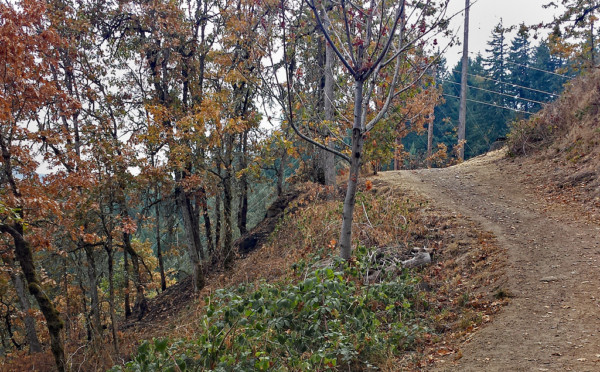 [/media-credit]
[/media-credit]
Two weeks later I stood on the Indian Creek trail. Charred grass and bushes below covered several acres. The trail cuts across the hill halfway between the waters of Hood River below and the residential area at the top. That morning I had called the captain of the Hood River Fire Department asking if he knew what caused the blaze. But they didn’t know yet. The night of the fire, firemen got to the trail pulling hoses fed from above just as the fire reached the trail.
“Because we were able to get to the trail before the fire jumped over, we were able to defend a clear line and get the fire under control,” he said. “Fifteen minutes later and the fire could have gained the upper hand.”
Maybe Marina was the first to call in the fire. If the eclipse had not lured her out on the deck, maybe her 911 call would have been too late.
“A fire in this canyon is our worst-case fire scenario for Hood River, the interface between town and wilderness,” the captain said. “We train for this exact situation.”
“After this experience,” I said, “fire danger seems so much more real.”
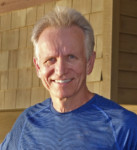 Peter Rysavy has lived in Hood River since 1998.
Peter Rysavy has lived in Hood River since 1998.
He is a wireless technology consultant and writes
as a hobby, both fiction and creative non-fiction.

